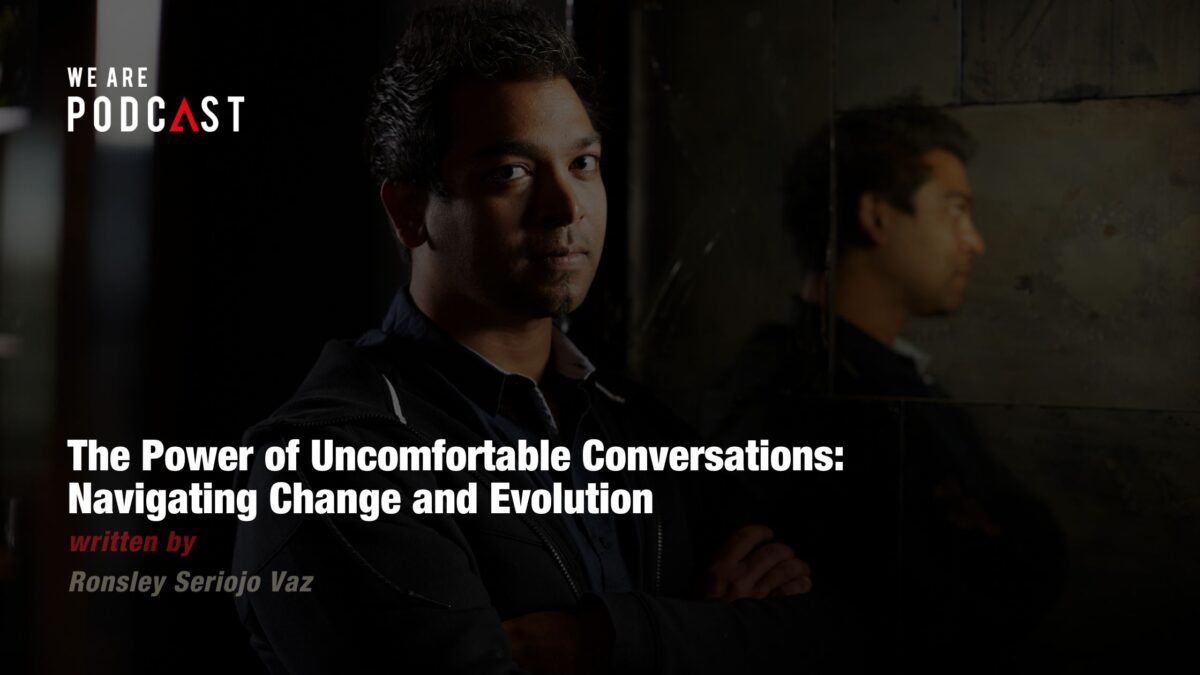In a world that is ceaselessly evolving and changing, embracing uncomfortable conversations has become not just crucial, but transformative, for personal and collective growth. For example, engaging in an uncomfortable conversation about racial inequality can lead to a greater understanding of systemic issues and spark meaningful change in society.
These conversations challenge our existing beliefs, expand our perspectives, and pave the way for profound and lasting positive transformation.
Embracing Discomfort for Growth
Uncomfortable conversations are often seen as extraordinary opportunities for growth and learning. They possess the unique ability to push us out of our comfort zones and force us to confront difficult truths or engage with conflicting viewpoints. While it may be tempting to avoid these conversations, it is through discomfort that we can truly expand our understanding and evolve as individuals.
By willingly engaging in uncomfortable conversations, we open ourselves up to not just new ideas and different perspectives, but to a vast reservoir of valuable insights.
These conversations not only challenge our biases but also broaden our knowledge in ways we couldn’t have anticipated. They enable us to see the world from various angles, not just as it is, but as it could be. Moreover, they foster empathy and understanding, allowing us to connect with others on a deeper and more profound level, thereby transcending the boundaries of our individual experiences.
Navigating Change through Uncomfortable Conversations
Change is an inevitable part of life, and uncomfortable conversations play an indispensable role in navigating through it. When faced with change, it is natural to feel a sense of resistance or fear. However, by embracing uncomfortable conversations, we can effectively adapt to change and harness its potential for growth.
Uncomfortable conversations provide a dynamic platform for exploring new possibilities and finding innovative solutions. They encourage us not just to question established norms but to dismantle them, challenge outdated systems, and seek out alternative approaches. By actively engaging in these conversations, we can uncover not just hidden opportunities but also hidden strengths within ourselves. We can identify not just areas for improvement but also areas where we can excel, both in our personal and professional lives.
The Power of Uncomfortable Conversations
Uncomfortable conversations possess an immeasurable power in shaping our evolution as individuals and as a society. They break down barriers, challenge the status quo, and pave the way for unprecedented progress.
Here are some key aspects of the power of uncomfortable conversations:
1. Encouraging Vulnerability and Authenticity
Uncomfortable conversations create an essential space for vulnerability and authenticity. When we engage in these conversations, we are often required to share not just our truest thoughts, feelings, and experiences, but our truest selves. This vulnerability fosters not only deeper connections but promotes genuine understanding between individuals. It allows us to let go of not just pretences but also self-imposed limitations and embrace our most authentic selves, leading to profound self-discovery and self-actualization.
2. Fostering Growth and Learning
Uncomfortable conversations provide an ever-fertile ground for growth and learning. They expose us not just to a myriad of different perspectives, but to a vast landscape of uncharted knowledge. They challenge not just our preconceived notions, but the very foundations of our understanding, encouraging the development not just of critical thinking skills but of wisdom. By actively participating in these conversations, we not only expand our knowledge but also develop new skills and broaden not just our horizons but the horizons of possibility. This continuous learning fuels personal and professional growth in ways we couldn’t have imagined.
3. Building Empathy and Understanding
Empathy and understanding are not just desirable qualities; they are essential ingredients for a harmonious society. Uncomfortable conversations enable us not just to step into someone else’s shoes but to walk in their footsteps. They allow us to see the world not just from their unique perspective, but to inhabit that perspective temporarily, experiencing it as our own. By actively listening and empathizing with others, we can bridge not just divides, but chasms, resolve not just conflicts, but deeply ingrained tensions, and foster not just a more inclusive and compassionate society, but a more united and harmonious world. These conversations serve not just as a cornerstone but as a lighthouse, guiding humanity toward unity and harmony in a diverse and interconnected world.
4. Igniting Positive Change
Uncomfortable conversations have the unparalleled power not just to ignite positive change, but to fuel a sustained and transformative fire. They not only challenge outdated beliefs but also question systemic injustices, and dismantle not just harmful ideologies, but the very systems that sustain them. By engaging in these conversations, we become not just catalysts for change, but architects of a brighter future for all. The impact of these conversations doesn’t just ripple through generations; it creates a legacy of transformative change that extends not just far beyond the initial dialogue, but far into the future, lighting the way for generations yet to come.
5. Expanding the Horizon of Uncomfortable Conversations
Beyond the transformative aspects, uncomfortable conversations are increasingly recognized as not just catalysts for innovation, but as the crucibles in which innovation is forged. They serve as not just a crucible for creative thinking, but as a breeding ground for creative solutions to the most pressing challenges of our time. As we embrace the power of discomfort, we discover not just that it has the potential to fuel innovation, but that it is the very fuel of innovation, driving not just positive organizational change, but radical and disruptive shifts in the way we conceive of and interact with the world. Uncomfortable conversations are not just conversations; they are the birthplace of ground-breaking technologies, the catalysts for revolutionary ideas, and the bridge to a future limited only by our imagination.
6. Strengthening Relationships and Building Trust
Uncomfortable conversations are not just confined to addressing societal or global issues; they are equally potent in nurturing personal relationships and strengthening trust. Whether in intimate partnerships, friendships, or family dynamics, these conversations provide not just an avenue, but a highway to address not just long-standing issues, but deeply ingrained conflicts. They offer not just a chance to heal wounds, but a process for profound healing and reconciliation. These conversations create not just a foundation, but a bedrock for healthier, more resilient relationships that cannot just withstand the test of time, but flourish and thrive in the face of adversity.
In a world that is ceaselessly evolving, embracing uncomfortable conversations is not just essential, but a profound testament to our commitment to personal and collective growth. These conversations don’t just push us beyond our comfort zones; they expand the very boundaries of what we thought was possible. They challenge not just our beliefs, but the very fabric of reality, and pave the way not just for monumental positive change, but for a profound transformation of our world.
So, let us not just shy away from uncomfortable conversations. Let us not just lean into them, but let us dive headfirst into the deep and uncharted waters of discomfort. Let us not just listen with an open mind, but with an open heart, and engage not just in respectful dialogue, but in an earnest and relentless pursuit of truth, understanding, and growth.

